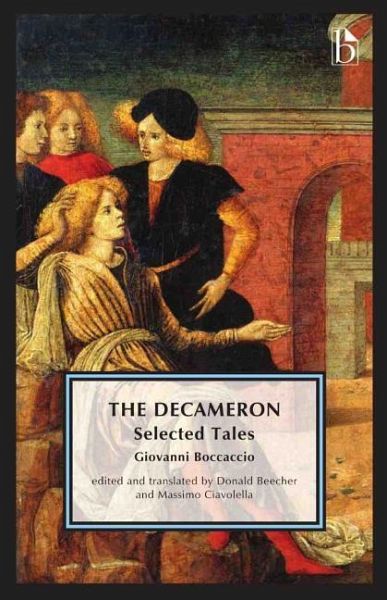

Count Walter and his children, unfairly exiled, are eventually reunited and returned to grace in France. Fortune sends Alatiel through the hands of seven men after her shipwreck. Beritola is separated from her sons in exile, but they are reunited and restored to their homeland after many years. Merchant Landolfo Rufolo turns to piracy and although he’s shipwrecked, he does make a fortune with some priceless jewels he recovers from the vessel likewise, a Sicilian Woman cons Andreuccio out of his cash, but he regains his wealth through the theft of a giant ruby. Alessandro secretly marries a princess, restoring his uncles’ twice-wasted fortunes. After highwaymen rob Rinaldo d’Asti, he’s taken in, fed, and bedded by a fine lady. Martellino’s fortunes fall when it appears that he’s mocking a local saint, only to rise again when he’s saved from execution. The theme of the second day, under the rule of Filomena, is Fortune. At the end of the day, the brigata decides to set themes for the tales, and Dioneo successfully petitions to ignore the themes and tell the tales he wants as the last speaker of the day.

A woman’s cutting censure over the failure of the King of Cyprus to protect his citizens transforms his character, and Master Alberto shames some young women for mocking him.

Courtier Bergamino criticizes his sovereign’s stinginess with a parable, and Guiglielmo Borsiere criticizes Ermino de’ Grimaldi’s with a few words. A blasphemous citizen exposes religious hypocrisy. A Young Tuscan Monk cleverly implicates his Tuscan Abbot in his own sexual sins, while the Marchioness of Montferrat subtly rebukes King Philip II for his inappropriate desire to sleep with her.

Excessively wicked Cepperello cons his way into sainthood Jewish Abraham’s intellectual curiosity leads to his Christian conversion and another Jew, Melchizedek, wisely avoids a dangerous question about whether Judaism, Christianity, or Islam is the true faith. Although the day doesn’t have an explicit theme, its tales all showcase human ingenuity and wisdom. Each day, one member rules as sovereign, directing the day’s entertainment and setting the tales’ theme. Over the next two weeks (taking a break on Fridays and Saturdays), the members of the group, or brigata, tell ten stories apiece. In the countryside, Pampinea suggests that they pass the hot afternoons telling each other tales in cool gardens. They recruit three men, Panfilo, Filostrato, and Dioneo, to join them and (along with their servants) they leave the city. Pampinea suggests they temporarily flee the city to escape the plague. During these dark days, seven young women- Pampinea, Fiammetta, Filomena, Emilia, Lauretta, Neifile, and Elissa-run into each other at the church of Santa Maria Novella. In 1348, the Bubonic Plague ravages the city of Florence, turning society upside down.


 0 kommentar(er)
0 kommentar(er)
